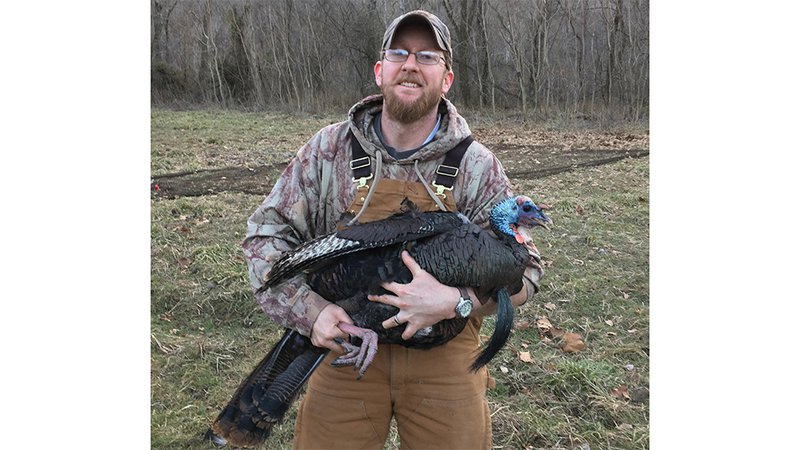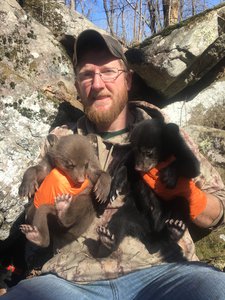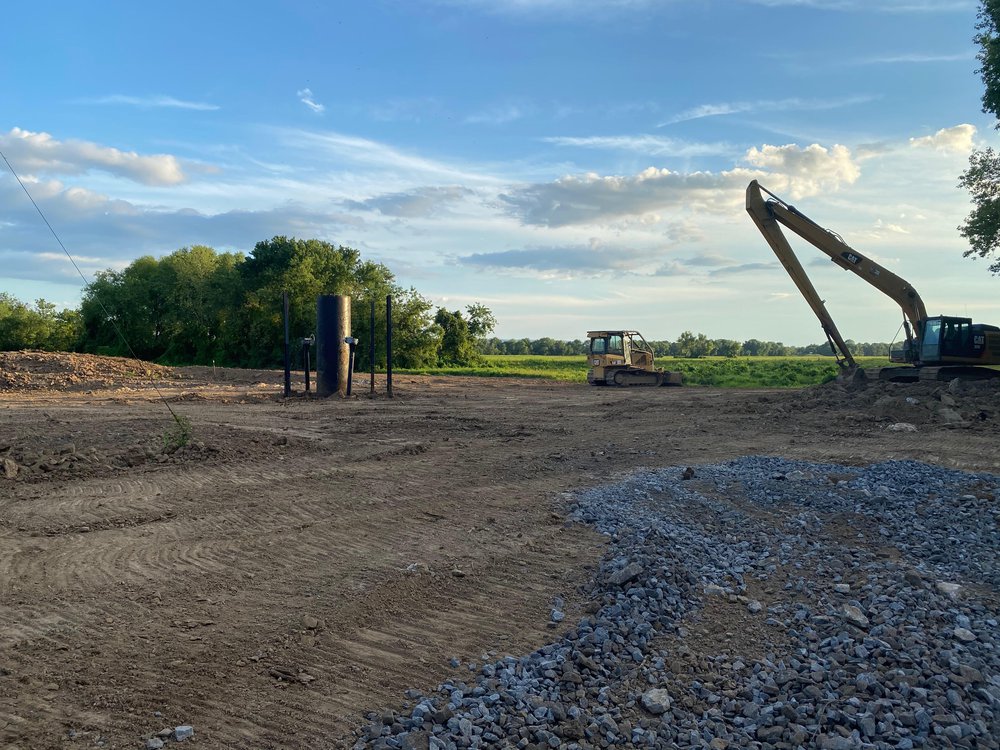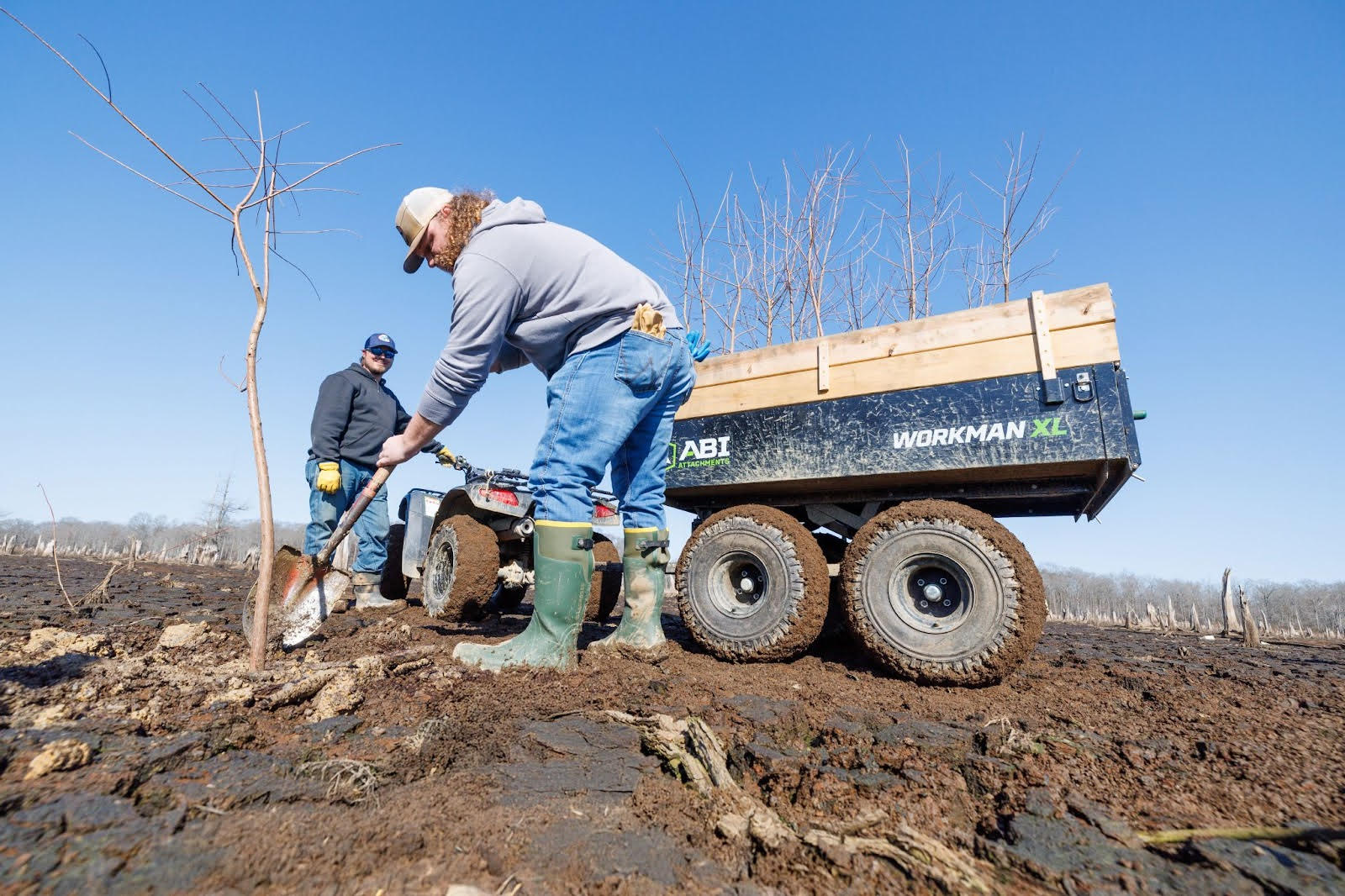Zachary finds his place at diverse Ed Gordon/Point Remove WMA
BY Jim Harris
ON 09-30-2020

Sept. 30, 2020
Jim Harris
Managing Editor Arkansas Wildlife Magazine
One of the most diverse regions in all of Arkansas for wildlife is the Arkansas Game and Fish Commission’s Region 7, a vast area of land in the Ozark Highlands and Arkansas River Valley that includes two major wildlife management areas, Ed Gordon/Point Remove WMA and Galla Creek WMA.
Alex Zachary is a veteran biologist in Region 7 on Ed Gordon and Galla Creek WMAs. Zachary, who turned 33 late in the summer, began work with the AGFC there in November 2011 as a technician and moved up to his current role as biologist in 2014.
Zachary was exposed to wildlife management while he was in diapers. His father, Robert Zachary, was an area manager and AGFC regional supervisor in northeast Arkansas for 38 years.
“Absolutely, I grew up loving the outdoors,” he said. “I grew up around it and it’s something – I don’t know exactly when I decided this was the career path I wanted to take, but I know in seventh or eighth grade they wanted us to select a career path and I said ‘wildlife biologist.’”
Duck hunting was No. 1 in his youth, and there it remains. “That’s my favorite type of hunting. Outside of squirrel hunting, that’s how I learned to hunt. I spent a lot of time hunting public land in northeast Arkansas, at Earl Buss Bayou DeView, Shirey Bay Rainey Brake, the L’anguille River bottoms, and places like that,” he said.
Next to Steve N. Wilson Raft Creek Bottoms WMA, Ed Gordon/Point Remove has the largest acreage of impounded moist-soil habitat in Arkansas at about 1,100 acres.
“Waterfowl is one of our primary focuses here for sure,” Zachary said. “One thing I cannot stress enough, the work we do here is going to benefit more than waterfowl. The diversity in these moist-soil habitats is massive. We have songbirds, invertebrates, shorebirds, all kinds of fish, amphibians, reptiles … (The moist-soils) support a WHOLE lot of life. We commonly have turkeys nest in our moist-soil units. The biggest group of poults we saw this past year was in one of our units. Deer obviously use these areas as well for browsing, fawning, and bedding. So, it serves a host of species, not just ducks in the wintertime.”
But public waterfowl hunters will enjoy their experience at Ed Gordon/Point Remove WMA. Waterfowl, including wood ducks, are banded there, Zachary noted. And visitors will note a significant change soon at Ed Gordon — a six-year project in partnership with Southwestern Energy and Ducks Unlimited to increase and enhance moist-soil habitats and improve infrastructure that feeds water into and out of the moist-soil units is wrapping up, meaning even more moist-soil acreage will be available.
“I’ve always loved it here and it’s a very unique area,” he said. “We’ve got a lot of open land habitat, whether it’s moist-soil or upland. A lot of our WMAs lack open lands, at least in the quantity that we have here.”

Recent News
Subscribe to Our Weekly Newsletter E-mails
Don’t miss another issue. Sign up now to receive the AGFC Wildlife Weekly Newsletter in your mailbox every Wednesday afternoon (Waterfowl Reports are published weekly during waterfowl season and periodically outside the season). Fishing Reports arrive on Thursdays. Fill in the following fields and hit submit. Thanks, and welcome!


